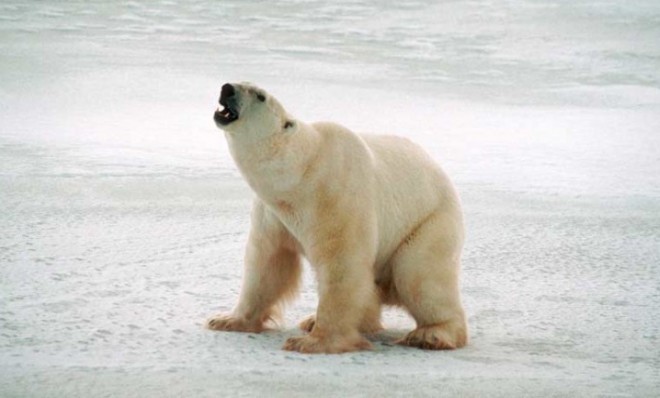Why it's probably too late to roll back global warming
Melting ice caps and widespread drought are virtual inevitabilities


A free daily email with the biggest news stories of the day – and the best features from TheWeek.com
You are now subscribed
Your newsletter sign-up was successful
Two degrees Celsius. According to scientists, that's the rise in global temperature, measured against pre-industrial times, that could spark some of the most catastrophic effects of global warming. Preventing the two-degree bump has been the goal of every international treaty designed to reduce greenhouse gas emissions, including a new one currently being hammered out at a United Nations summit in Doha, Qatar. But a new study published by the journal Nature Climate Change shows that it's incredibly unlikely that global warming can be limited to two degrees. According to the study, the world in 2011 "pumped nearly 38.2 billion tons of carbon dioxide into the air from the burning of fossil fuels such as coal and oil," says Seth Borenstein at The Associated Press:
The total amounts to more than 2.4 million pounds (1.1 million kilograms) of carbon dioxide released into the air every second.
Because emissions of the key greenhouse gas have been rising steadily and most carbon stays in the air for a century, it is not just unlikely but "rather optimistic" to think that the world can limit future temperature increases to 2 degrees Celsius (3.6 degrees Fahrenheit), said the study's lead author, Glen Peters at the Center for International Climate and Environmental Research in Oslo, Norway.
What happens when the two-degree threshold is crossed? Most notably, that's when the polar ice caps will begin to melt, leading to a dangerous rise in sea levels. Furthermore, the world's hottest regions will be unable to grow food, setting the stage for mass hunger and global food inflation. The rise in temperature would also likely exacerbate or cause extreme weather events, such as hurricanes and droughts.
There is a very small chance that the world could pull back from the brink. The U.N. could still limit warming to two degrees if it adopts a "radical plan," says Peters' group. According to a PricewaterhouseCoopers study, such a plan would entail cutting carbon emissions "by 5.1 percent every year from now to 2050, essentially slamming the breaks on growth starting right now," says Coral Davenport at The National Journal, "and keeping the freeze on for 37 years." However, the U.N. has set a deadline of ratifying a new treaty by 2015, and implementing it by 2020, which means the world is already eight years behind that pace. There are still major disagreements between the U.S. and China over whether the developed world, which industrialized first, should bear the bulk of the cost of reducing carbon emissions. And there is, of course, a large contingent of Americans who don't even believe climate change exists, putting any treaty's ratification at risk. Climate change is so politically toxic in America that Congress has prioritized the fiscal cliff over — no exaggeration — untold suffering and the end of the world as we know it.
The Week
Escape your echo chamber. Get the facts behind the news, plus analysis from multiple perspectives.

Sign up for The Week's Free Newsletters
From our morning news briefing to a weekly Good News Newsletter, get the best of The Week delivered directly to your inbox.
From our morning news briefing to a weekly Good News Newsletter, get the best of The Week delivered directly to your inbox.
In other words, it isn't happening. And if that's not bad enough, keep in mind that the two-degree mark is just the beginning, says Davenport:
Michael Oppenheimer, a professor of geosciences and international affairs at Princeton University and a member of the Nobel Prize-winning U.N. Intergovernmental Panel on Climate Change, says that a 2-degree rise is not itself that point, but rather the beginning of irreversible changes. "It starts to speed you toward a tipping point," he said. "It's driving toward a cliff at night with the headlights off. We don't know when we'll hit that cliff, but after 2 degrees, we're going faster, we have less control. After 3, 4, 5 degrees, you spiral out of control, you have even more irreversible change."
Indeed, at the current emissions rate, the world is expected to broach the four-degree mark by 2100 — at which point, we can expect even worse environmental catastrophes.
Some analysts say that the best possible scenario is preventing the Earth from warming up by three or four degrees. That means instead of focusing solely on preventing global warming, governments around the world should begin preparing for the major environmental upheavals, starting with protections for coastal cities.
A free daily email with the biggest news stories of the day – and the best features from TheWeek.com
Ryu Spaeth is deputy editor at TheWeek.com. Follow him on Twitter.